Drew’s neck was broken during a swimming accident in Peru in 2011. He spent the first year and a half after the accident in an intensive care unit (ICU), and a few years after that in a rehabilitation hospital. He is unable to move his arms or legs and is dependent on a ventilator to breathe. He lives at home with his family and works for a company that makes food trucks.
“It was a fluke accident with a big wave hitting me. I was 20 years old, had just finished my second year of university and was planning to work for the summer when I got back from my trip to Peru. Unfortunately I didn’t come back on my feet, so those plans changed!
My whole life I had worked to set myself up for success by going to school and getting jobs in my field. After the accident, I thought, ‘Okay, I just spent 20 years setting my life up and now it’s shattered.’
“It was very difficult in the beginning. During the first part of my ICU stay I had no idea where I was or what was going on. I was constantly in and out of consciousness. I was terrified. Every time I woke up they would have to tell me where I was, what was going on, what had happened. And relying on a ventilator made it even more terrifying – I was worried it would pop off.
“Some nurses were assigned to be my usual care providers while I was in the ICU. A few of them became like my sisters and one was like a mom to me. Because I was there 24/7 for 16 months, the ICU physicians, respiratory therapists, nurses and personal support workers became like my family.”
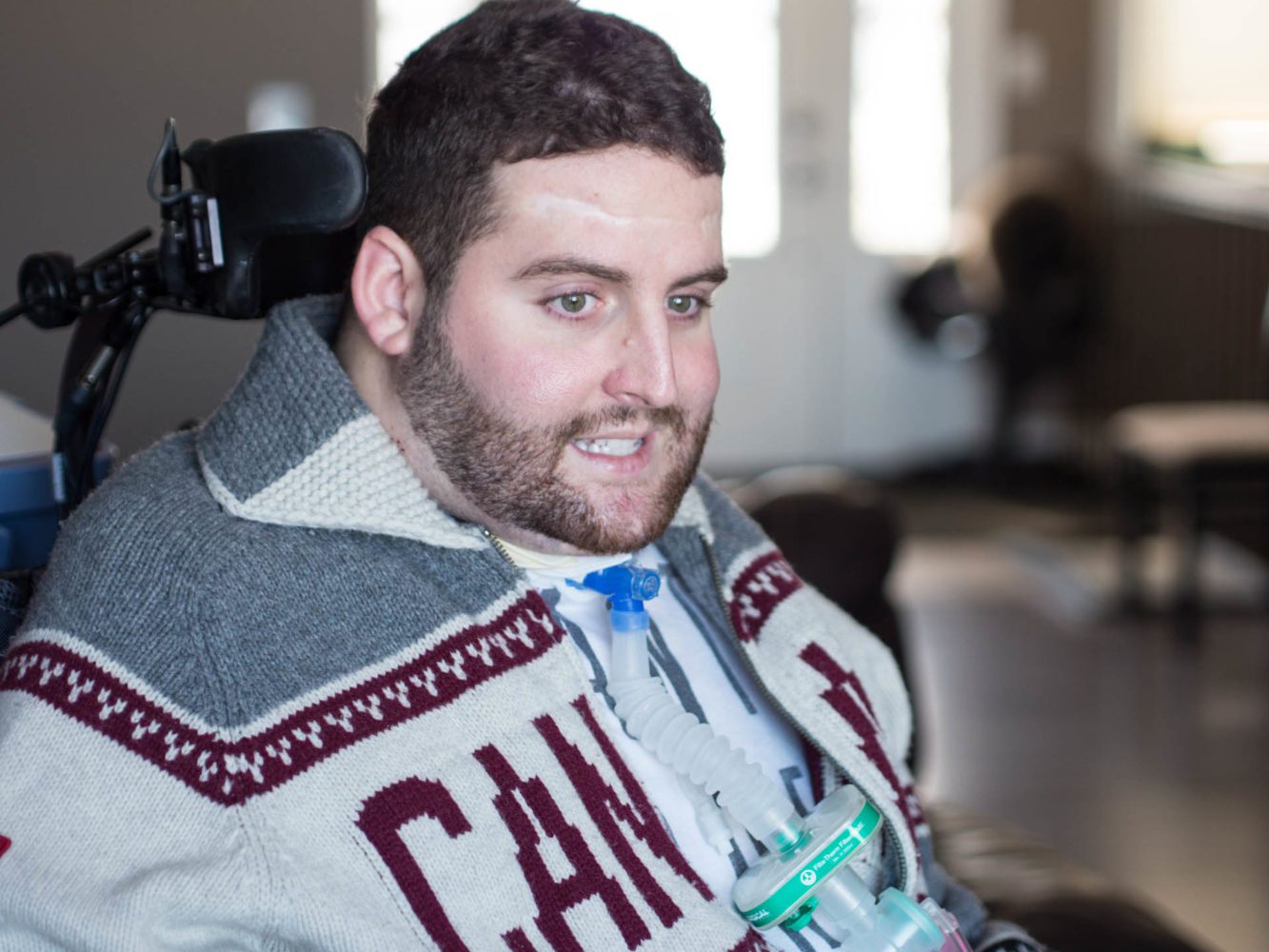
“I believe in God. When I had the accident I thought that there was obviously a purpose to it. There was a reason I was still here – to tell my story and to help improve healthcare. My main focus since the accident has been to advocate for people with disabilities and help them figure out how to adapt to adversity. I said to myself, ‘If this is what the rest of my life is going to be like, I am not going to waste it.’
“I looked into a diaphragm pacing system after my accident, with the hope that it might get me off the ventilator. I was approved for the surgery but the device cost $37,000 US, and there was no way we could afford that.
“I started trying to find funding, and initially had no luck at all. I could not get an answer from the government. So I started a gofundme page for the surgery. Then my surgeon gave me a call and said that his hospital would cover the device, and that afterwards we could work on a proposal to the Ministry to have more of the procedures paid for by the government. And that is what has occurred. I was the tenth Canadian to have the diaphragm pacemaker procedure tried. They got in there and the left side of my diaphragm would not trigger so they could not put the diaphragm pacer in.
Although the surgery did not end up working for me, the fact that I was able to help get things to a point where people are able to get the surgery without having to pay for it, was very satisfying.
“I am on my computer probably 14 hours a day. I use Dragon Naturally Speaking and have joy sticks that I use with my lips; one is the clicker and one’s the mouse mover. It allowed me to finish school. I graduated last year from the University of Guelph.
“I am not letting this disability stop me from living life. I travel. Last February I was in Mexico for a week. My goal is to get to all seven Wonders of the World. I have checked off two. Machu Picchu was prior to my accident and Chichen Itza after.
“I have started my own business focusing on hospitality and disability consulting. There are barriers everywhere, and I want to show that people can still travel. You just have to plan carefully. One of the things that I also advocate for is creating homes and environments for people with disabilities who are younger. I was at an institution for three years when I was in my 20s and I was often the only young person with the cognitive ability to communicate with other people. That was tough.”
“I have 24/7 care from seven personal attendants who are funded by the Ontario Ministry of Health through the Direct Funding Program. The Community Care Access Centre provides me with a nurse in the morning and the evening, and a personal support worker in the afternoon. With my disability I need two people to get me in and out of bed safely.
“I hire all of the attendants myself. One of the main factors influencing my decision is definitely personality. I spend eight hours a day with them, and eight hours with someone that I can’t stand is not going to make my life any fun, for sure. Before hiring them I do two training shifts where they are buddied with one of my workers and I see how they react in terms of personality with me and my other workers. I hire personal support workers (PSWs), nursing students, respiratory therapy students. It’s just making sure I find the right fit. Once that person and I are comfortable it makes it much easier. It’s still crazy because there are seven different people in here throughout the week.
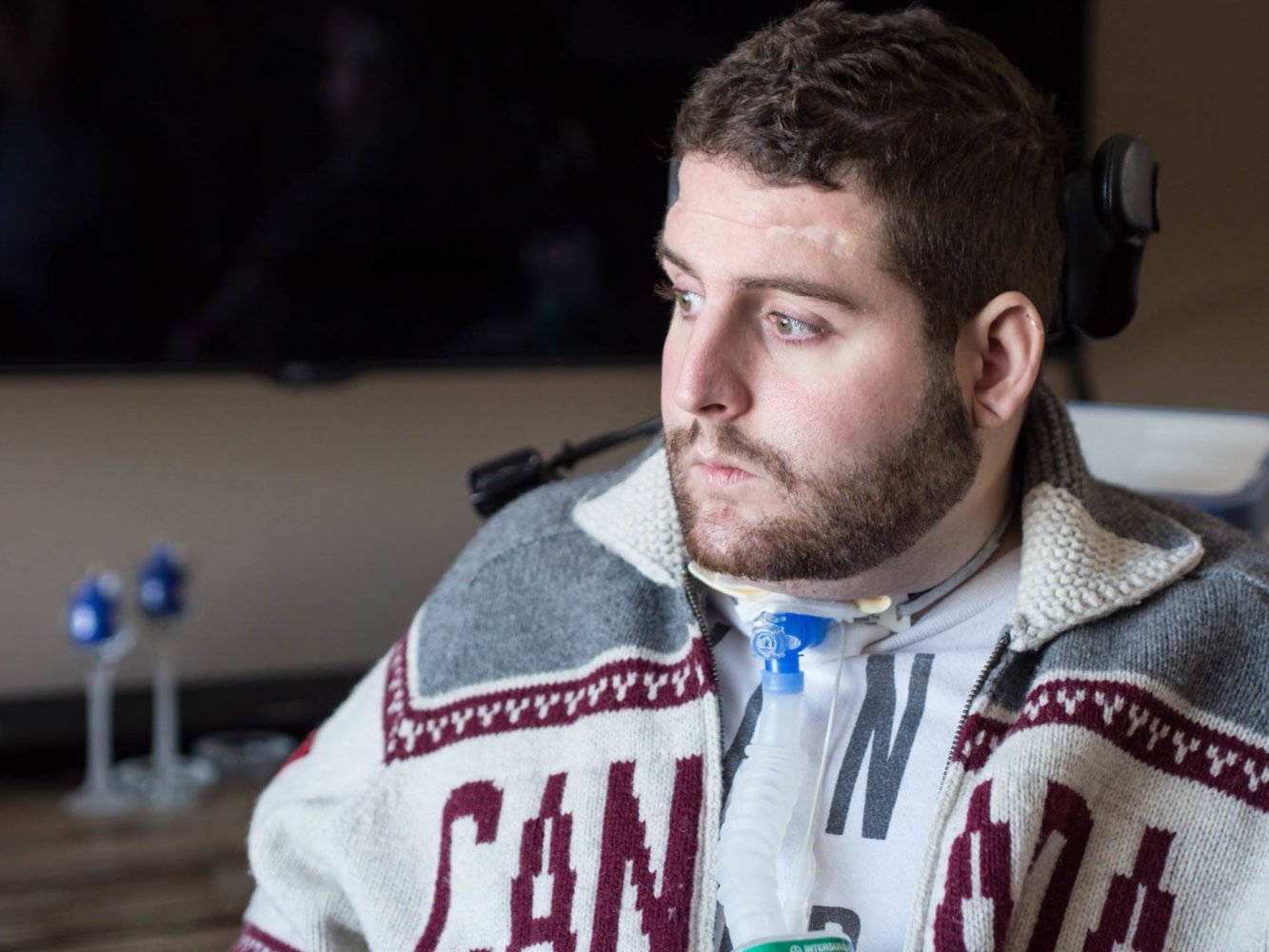
“I have open up a separate bank account – it’s almost like a small business. The Direct Funding program puts the money in there every month for the attendants. I have a bookkeeper who does my payroll and writes out all the cheques.
One thing that has become an issue recently is retention of employees because the wages I can pay are relatively low. It is also complicated because the wages vary throughout the day depending upon the type of work the attendant has to do – for example getting me up and dressed in the morning gets a higher hourly wage than some other activities.
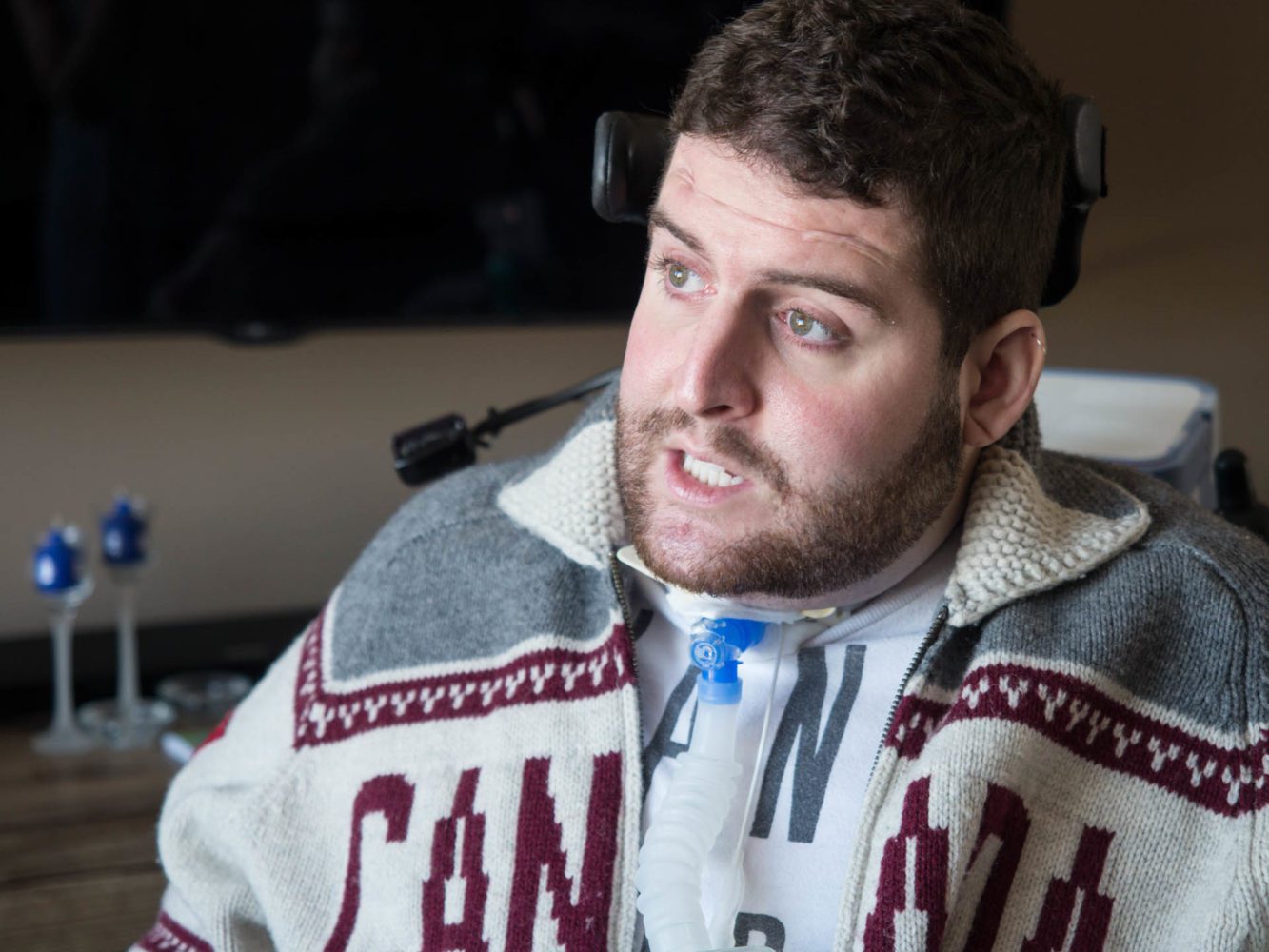
“I had finished my second year of the Bachelor of Commerce program at Guelph before the accident and still had 22 courses to take. I went back to school in January 2013 and started with the distance ed courses. Then my mom got sick with cancer, so that was another difficult time. I graduated in June 2016. It was a lot of work, and definitely took dedication and drive.
Proctors came to my hospital room so that I didn’t have to write the exams in a room full of people and be exposed to the flu. The university was amazing and really good at accommodating what I needed.
“For the courses that were not offered through distance ed, I Skyped into the lectures and had a student in the class take notes and send them to me after. I had two lab courses related to a restaurant that we ran on campus. We were paired up with two other students and had to create a menu and do other stuff for the restaurant. I commuted to and from Guelph from Kingston every other Friday for a semester. I was in the rehab hospital at the time, and would get up at five in the morning. My PSW would get me dressed and in my chair, and we’d make the trek up to Guelph and drive back that evening. A lot of days I got home at 10 at night, so it was a long day.
“My program was very small, maybe 150 students a year, so I knew basically all the students. I went to Guelph for the graduation and also for my formal. It was the same day as my 25th birthday – they had a birthday cake for me and everything, which was nice.”
“I currently work for a food truck manufacturing company. We make trucks for clients around the world. It’s my first job since my accident. The company has been great at making sure I have everything I need. It’s not easy trying to find a job when you can’t move anything below your shoulders and are in a wheelchair.
The biggest issue I struggled with was when to tell people that I have a disability. Do I tell them before they even look at my resume or do I tell them when I talk to them the first time?
“With my current employer, we were on the phone prior to the in-person interview and I said, ‘I am paralyzed from the neck down. I can still do everything. Obviously I can’t manipulate things with my hands but I can still use my brain. I have a degree in business. I did accounting and economics – all stuff that applies to business.’”
What did he say?
“He was very receptive. He wasn’t afraid to ask the questions that people should and need to ask. Like whether I need a special bathroom. He was open to knowing. It started out as a trial period to see how I fit with the company, and it worked into regular employment. Because it is a small company I get to do a bit of everything – sales and marketing, social media marketing, quote proposals. I am really happy that they gave me a chance to show that I am able to work. Yes, I have a disability, but it doesn’t hinder my ability to use my brain.”

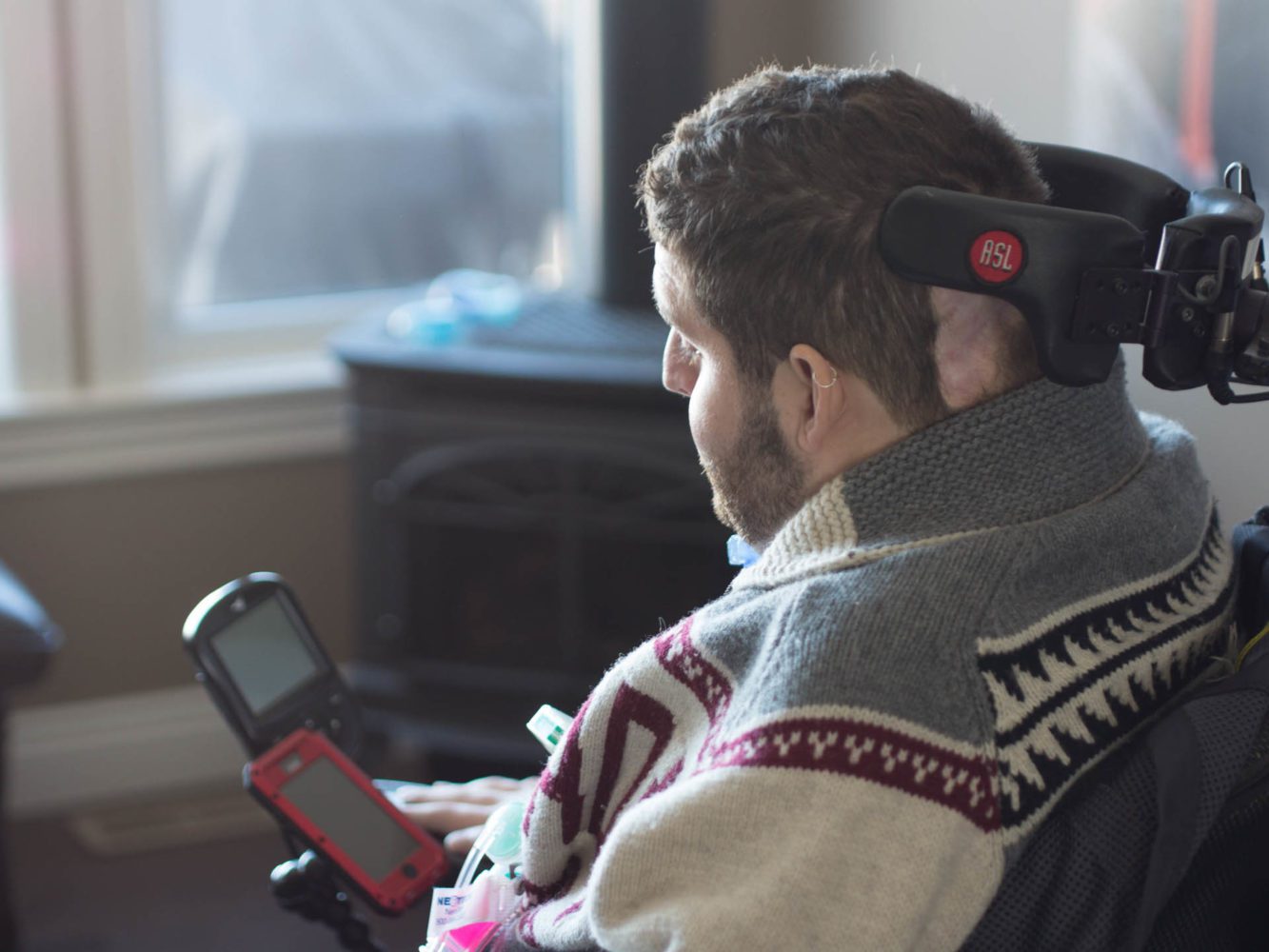
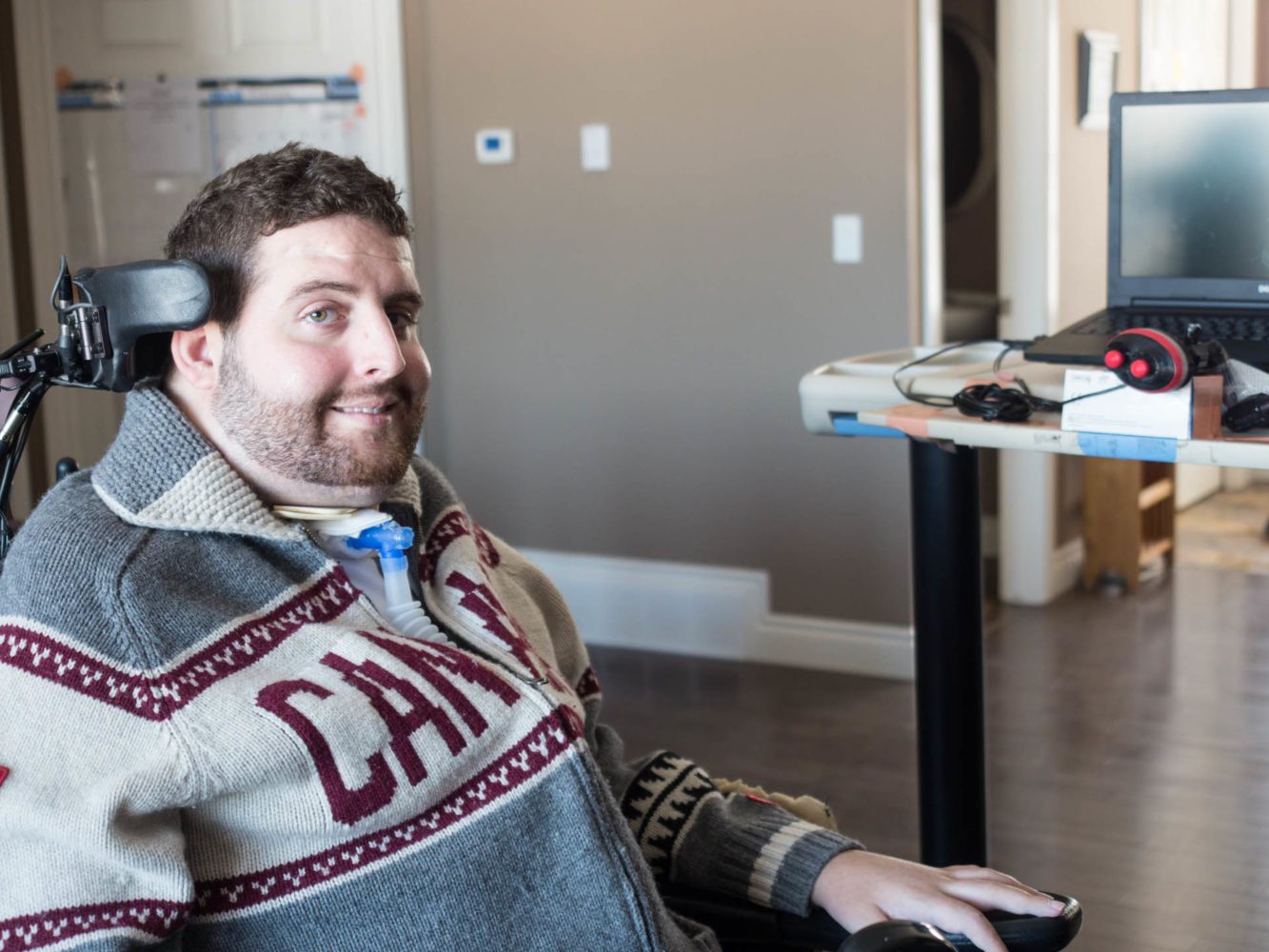

The comments section is closed.